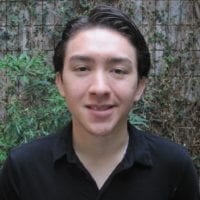
Understanding Early Meiotic Role of Cytoskeletal Elements in Maize
Chromosomal pairing events in meiotic prophase I are linked to chromosome dynamics in maize. In order to facilitate homologous pairing, chromosomes undergo vigorous movements referred to as rapid prophase movements, or RPMs. Prior to rapid prophase movements (RPM) of chromosomes, telomeres cluster tightly together in close relation to the nuclear envelope, a phenomenon referred to as the telomere bouquet. In other species, during prophase I, telomeres associate with a complex of proteins in the nuclear envelope which connect with the cytoskeleton outside of the nuclear envelope. In maize, prophase chromosome dynamics are telomere-lead and preliminary data have indicated that deformations in the nuclear envelope occur, concurrent with the movements of telomeres. In addition to these data, it is known that disrupting the cytoskeleton has a dramatic effect on RPMs. The maize meiotic mutant ,pam1 shows significant impairment of bouquet formation as well as slower and less dramatic chromosome movements. However, previous work has not yet provided significant evidence for a telomere-cytoskeleton connection in maize either directly or via similar proteins to the complex observed in other species. In order to study this relationship, I visualized maize meiocytes in the early stages of prophase I. Preliminary results indicated the presence of a half-ring of fluorescently tagged tubulin encircling one hemisphere of the nucleus. This half-ring is present in both pam1 mutants and wild-type maize. I investigated the timing of the appearance of this half-ring in both mutant and wild type maize as well as the relationship between telomere clusters and the location of this semi-circle.
My Experience
As an intern with BTI I learned not only specifics about the field of study that I was working in but also about the process of doing research on a very real level. The most valuable part of the experience for me was working in a lab where nearly everyone was many years senior to me in age and scientific careers. It was a pleasure to listen to stories or ask them questions about their experiences. I was also placed in a lab where a lot of the techniques were totally foreign to me. At first it was a little unnerving because everyone seemed to trust me pretty quickly with techniques they knew I’d only just learned. However, as the weeks passed I was grateful for the host of new skills I had acquired.
